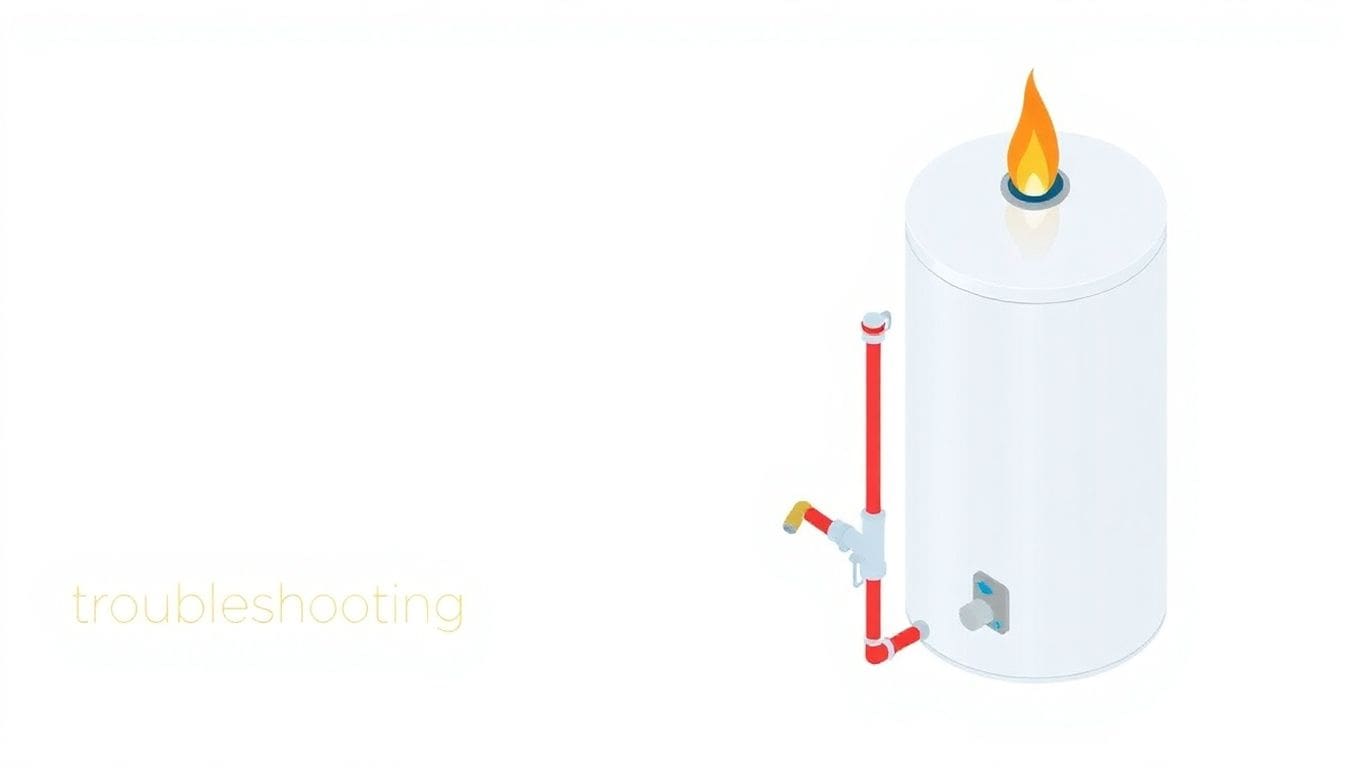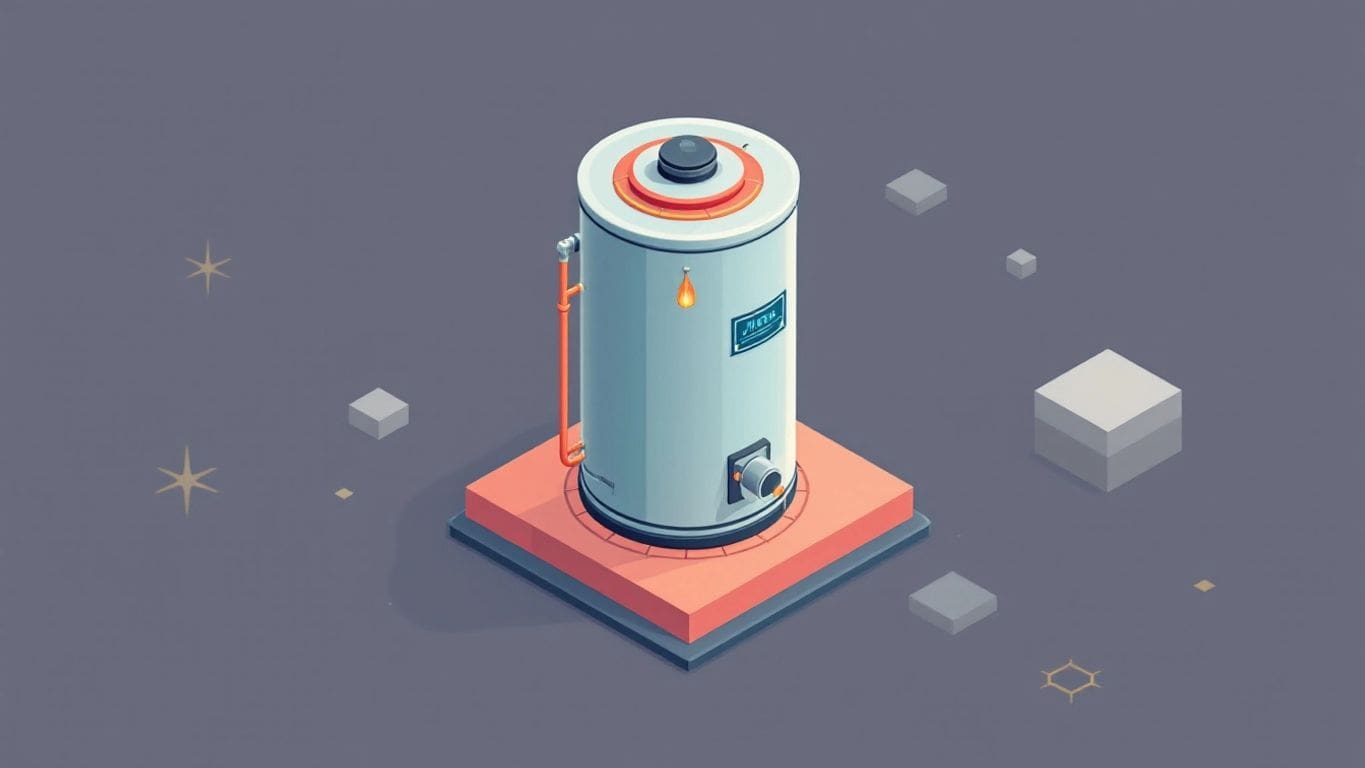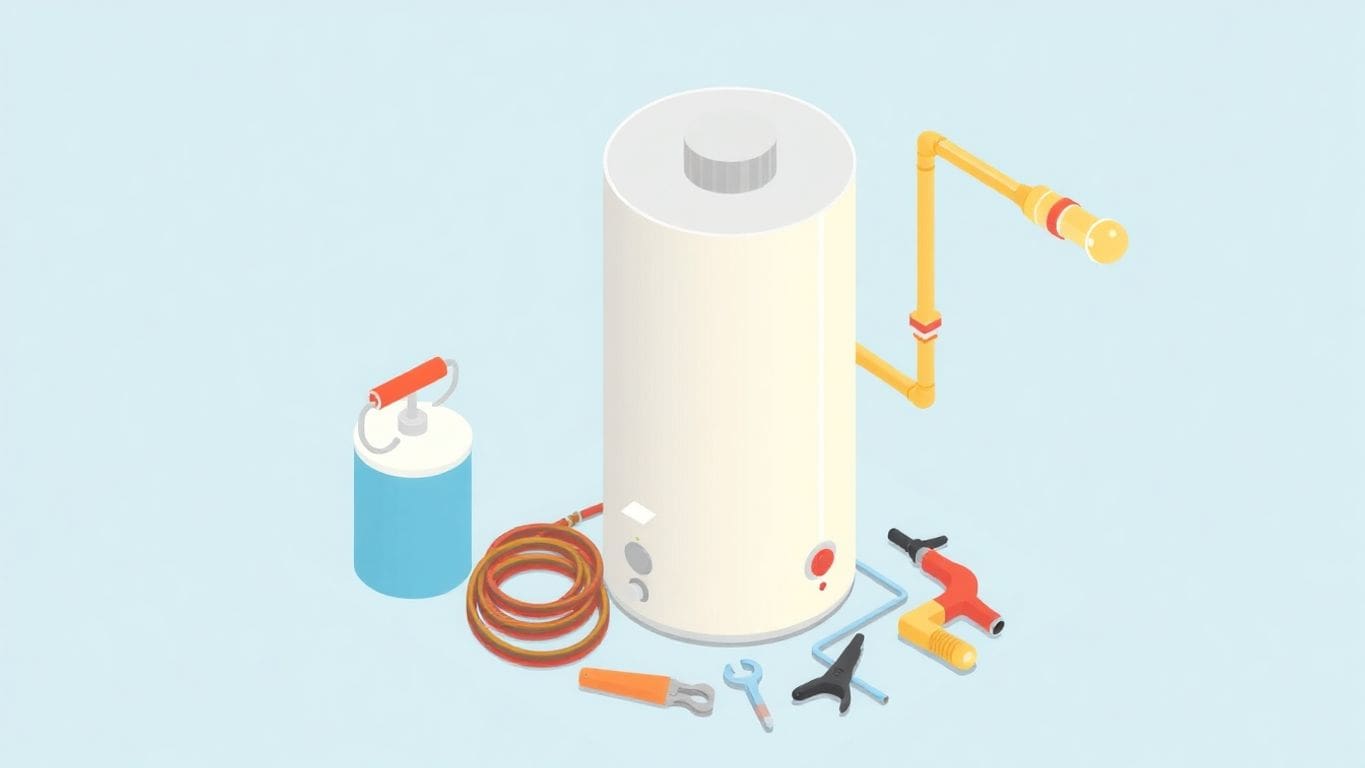
If your water heater is acting up, you might be wondering, can water heaters be repaired? The good news is, many common problems can be fixed without calling in a pro. This guide will help you understand what issues you might face, how to troubleshoot them, and when it’s time to seek professional help. Whether you’re dealing with a lack of hot water or a leaking tank, we’ve got you covered with tips and solutions to keep your water heater running smoothly.
Water heaters, like any appliance, can have problems. Knowing what to look for can save you time and money. Some common issues include:
These problems can stem from different causes, like a bad heating element, a broken thermostat, or sediment buildup. Regular checks can help catch these early.
It’s important to know when your water heater needs a check-up. Here are some signs to watch out for:
Ignoring these signs can lead to bigger, more expensive problems down the road. It’s better to address issues early.
Yes, water heaters can often be repaired! Many common issues are easy to fix. Things like replacing a heating element or thermostat are usually straightforward. However, some problems, like a leaking tank, might mean it’s time for a new water heater. The age of your water heater is a big factor. If it’s old, repairs might not be worth it. Always think about the cost of the repair versus the cost of a new unit.
When your water heater isn’t working right, don’t panic! You can try some simple checks before calling a pro. These steps can help you figure out what’s wrong and maybe even fix it yourself. Let’s get started!
First things first, make sure your water heater is getting power. This might seem obvious, but it’s often the cause of the problem. Go to your circuit breaker box and look for the breaker that controls your water heater. If the breaker has tripped (moved to the "off" position), flip it back to "on". If it trips again right away, there might be a bigger electrical problem, and you should call an electrician.
The thermostat controls the temperature of the water in your tank. If it’s not set right, your water might not get hot enough. Find the thermostat on your water heater (it’s usually behind an access panel) and make sure it’s set to the temperature you want. A good setting is usually around 120°F (49°C). Also, check for any signs of damage or corrosion on the thermostat. If it looks bad, it might need to be replaced.
Thermostats can sometimes fail. If your water isn’t getting hot enough, even with the thermostat set high, the thermostat itself might be the problem. Replacing it is often a pretty easy fix.
Over time, sediment (minerals and other stuff) can build up in the bottom of your water heater tank. This can make your water heater less efficient and even cause it to make strange noises. To check for sediment, drain a little water from the tank. If the water that comes out is cloudy or has particles in it, you probably have sediment buildup. Flushing the tank can help get rid of the sediment and improve your water heater’s performance.
Here’s a simple table to help you understand sediment buildup:
| Sediment Level | Potential Issues |
|---|---|
| Low | Minor efficiency loss |
| Medium | Reduced heating, some noise |
| High | Significant loss, loud noises, damage |
To flush the tank:
Electric water heaters are pretty reliable, but they can still have issues. Let’s look at some common problems you might run into.
Not having hot water is a big problem! It could be a few things. First, check your circuit breaker. Sometimes it trips and cuts off power to the heater. If that’s not it, the heating element might be bad. Heating elements heat the water, and if they fail, you won’t get hot water. You might need to replace them. Also, check the thermostat. It might be set too low or be broken.
Finding water around your water heater is never a good sign. It could mean the tank is leaking. Sometimes, it’s just a loose connection that you can tighten. But if the tank itself is leaking, that’s a bigger issue.
A leaking tank often means it’s time for a new water heater. Tanks can rust over time, leading to leaks. It’s best to address this quickly to prevent water damage in your home.
If your hot water smells weird, like rotten eggs, it’s probably bacteria in the tank. This often happens if the water heater isn’t used for a while. Here’s what you can do:
So, your water heater isn’t working right? Don’t worry, we can figure this out. Sometimes, fixing it yourself is possible. Other times, you might need a pro. Let’s talk about the parts you might need and how to handle some common fixes.
If you’re going to fix your water heater, you’ll probably need some new parts. Here are a few common ones:
One common repair is replacing a heating element. Here’s how you do it:
Remember to always follow the manufacturer’s instructions. If you’re not comfortable doing this, call a plumber.
Leaks can be tricky. Sometimes, it’s just a loose connection. Other times, the tank itself is leaking. If the tank is leaking, you might need a new water heater.
Here’s what to do:
| Problem | Possible Solution |
|---|---|
| No hot water | Check heating element and thermostat. |
| Leaking tank | Tighten connections or replace the water heater. |
| Water too hot | Adjust the thermostat. |
Sometimes, fixing a water heater means going beyond the basics. You might run into problems that need more know-how. If you’re not comfortable with these kinds of repairs, it’s always best to call a professional. They have the skills and tools to handle complex issues safely.
When simple fixes don’t work, it’s time to look at more complex problems. This could mean anything from a broken heating element to issues with the system’s controls. The first step is always to figure out exactly what’s wrong. Use a multimeter to test electrical parts, and carefully check for leaks or corrosion. If you find a problem, you might need to replace parts or do some serious cleaning.
Some newer water heaters use computer-like controls to manage temperature and energy use. If these systems fail, it can be tricky to diagnose the problem. You might need special tools or software to figure out what’s going on. Here are some things to keep in mind:
Dealing with microprocessor control systems can be intimidating. These systems are complex and require specialized knowledge to repair. If you’re not comfortable working with electronics, it’s best to leave these repairs to a qualified technician.
If you have a gas water heater, the pilot light is what starts the burner. If the pilot light goes out, you won’t get any hot water. Here’s what to do:
If you’re still having trouble, it might be time to call a professional. Working with gas can be dangerous, so it’s always better to be safe than sorry.
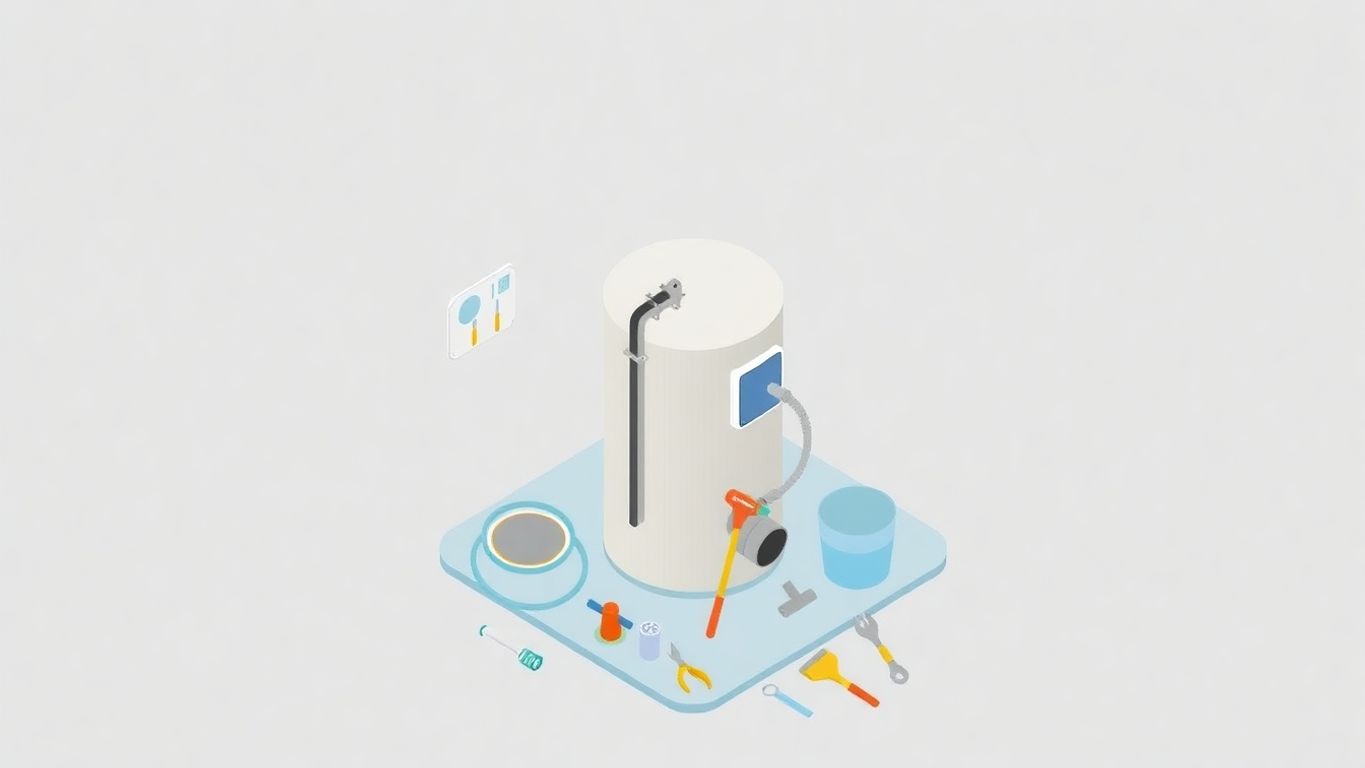
Taking care of your water heater can help it last longer. It’s like taking care of your car – a little work now can save you big problems later. Here’s how to keep your water heater in good shape.
Sediment can build up in your water heater tank over time. This is like dirt settling at the bottom of a fish tank. It can make your water heater work harder and not as well. Flushing the tank gets rid of this sediment.
Here’s how to flush your tank:
Flushing your water heater once a year can really help it last longer. It’s a simple thing that makes a big difference.
The thermostat controls how hot your water gets. If it’s not set right, your water could be too hot or not hot enough. Check your thermostat to make sure it’s set to the right temperature, usually around 120 degrees Fahrenheit.
Here’s how to check and adjust your thermostat:
Check your water heater for leaks every few months. Look around the tank, pipes, and connections. If you see any water, that’s a sign of a leak. Even a small leak can cause big problems if you don’t fix it. If you find a leak, call a plumber to get it fixed.
Here are some things to look for:
So, you’re thinking about fixing your water heater yourself? That’s cool! The internet is full of info to help you out. Just be careful and know your limits.
There are tons of websites with guides that walk you through fixing common water heater problems. These guides often have pictures or diagrams, which can be super helpful. Look for guides that match your water heater’s model, if you can. It’s also a good idea to read through the whole guide before you start, so you know what you’re getting into.
YouTube is your friend! You can find videos showing you how to do almost any water heater repair. Seeing someone do it can be way easier than just reading about it. But, make sure the person in the video knows what they’re doing. Check the comments to see if other people found the video helpful.
Online forums are great places to ask questions and get advice from other people who have fixed their own water heaters. You can describe your problem and see if anyone else has had the same issue. Just remember that not everything you read on the internet is true. Get advice from multiple people before you try something, and always double-check the information.
Fixing a water heater yourself can save you money, but it can also be dangerous if you don’t know what you’re doing. Always turn off the power and water before you start any repairs. If you’re not comfortable with something, it’s always best to call a professional.
Sometimes, fixing a water heater yourself isn’t the best idea. There are times when you really need to call in a pro. It’s all about knowing when you’re in over your head. I know I’ve been there!
If you’re dealing with something that seems really complicated, it’s time to get help. This could be anything from weird noises you can’t figure out to the water heater just not working at all, even after you’ve tried the basic fixes. If you’re not sure what’s wrong, don’t guess. Call someone who knows.
Water heaters involve both water and electricity (or gas), which can be a dangerous mix. Never try to fix something if you’re not comfortable working with these things. Gas leaks are super dangerous, and electrical shocks can be deadly. If you even suspect a gas leak, get out of the house and call the gas company right away. Don’t try to fix it yourself!
Here’s a quick list of when to call a pro for safety reasons:
Okay, so calling a pro costs money, but think of it as an investment. A good repair can save you money in the long run by preventing bigger problems. Plus, you’re paying for their knowledge and experience. Before you hire someone, get a few quotes to compare prices. Also, check if your water heater is still under warranty. The repair might be covered!
Getting a professional to fix your water heater might seem expensive, but it’s often cheaper than the damage you could cause by trying to do it yourself. Plus, you get peace of mind knowing it’s done right.
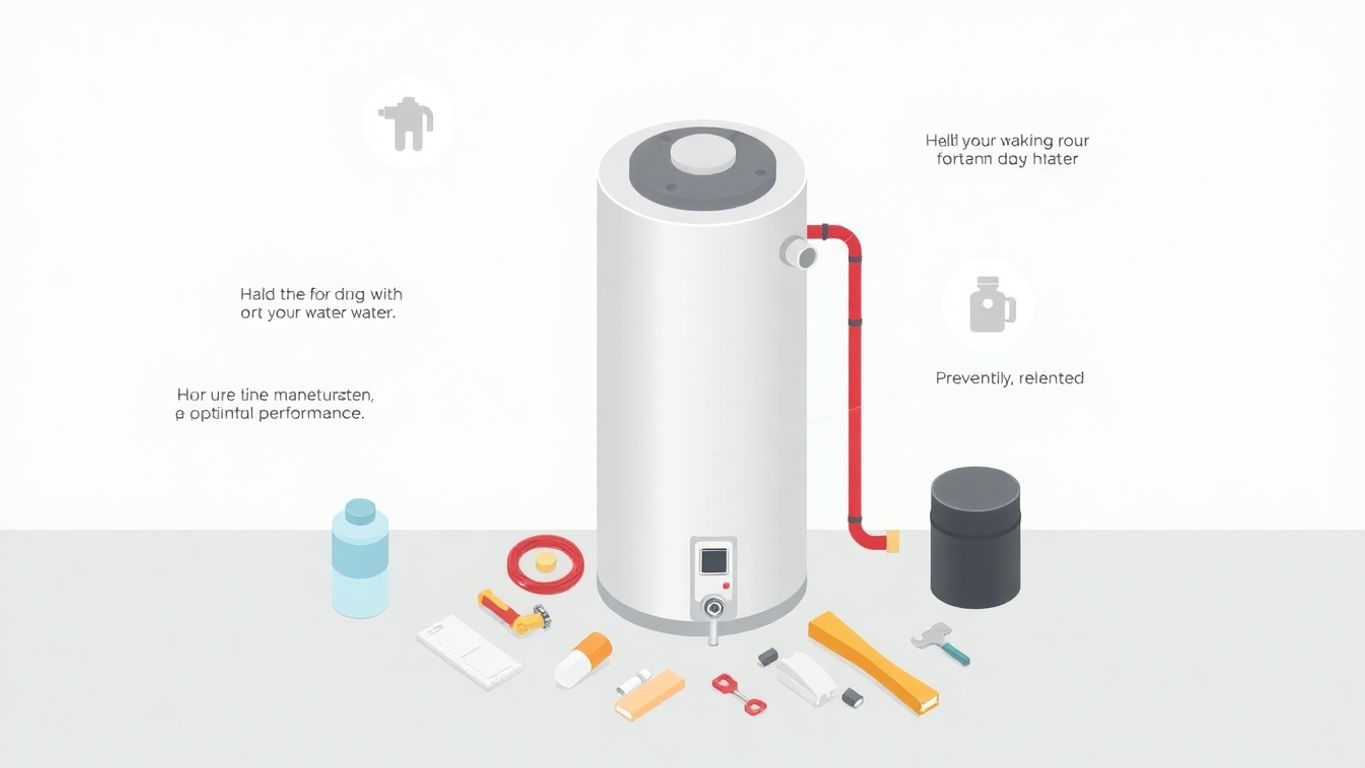
Taking care of your water heater can help it last longer and work better. Here’s how to keep it in good shape.
Make it a habit to check your water heater regularly. Look for any signs of leaks, rust, or damage. Catching small problems early can stop them from turning into big, expensive repairs. A quick check each month can save you a lot of trouble later on.
Hard water has a lot of minerals that can build up inside your water heater. This buildup, called sediment, can make your heater less efficient and shorten its life. A water softener systems can remove these minerals, helping your water heater stay clean and work better for longer. It’s a good investment if you live in an area with hard water.
Setting your water heater to the right temperature is important. If it’s too high, you could waste energy and risk scalding. If it’s too low, you might not have enough hot water. A good temperature is around 120°F (49°C). This temperature is hot enough for most uses but safe enough to prevent burns. Keeping an eye on your temperature settings can save energy and keep you safe.
Regular maintenance is key to keeping your water heater running smoothly. Simple steps like checking for leaks and controlling the water temperature can make a big difference. By taking these preventative measures, you can avoid costly repairs and extend the life of your water heater.
Some usual problems include not getting hot water, leaks, and strange smells coming from the water.
If you notice no hot water, leaks, or unusual noises, it might need repair.
Yes, many simple issues can be fixed at home, like resetting the thermostat or checking for leaks.
If the problem is complex, like electrical issues or major leaks, it’s best to get a professional.
You should check your water heater at least once a year for any signs of wear or issues.
Yes, sediment can reduce efficiency and cause problems, so it’s important to flush the tank regularly.
Common parts include heating elements, thermostats, and valves.
Most water heaters last about 8 to 12 years, depending on the type and maintenance.

